Renault Captur vs VW ID.3 - Differences and prices compared
Compare performance (158 HP vs 326 HP), boot space and price (21100 £ vs 28600 £ ) at a glance. Find out which car is the better choice for you – Renault Captur or VW ID.3?
Costs and Efficiency:
Price and efficiency are key factors when choosing a car – and this is often where the real differences emerge.
Renault Captur has a noticeable advantage in terms of price – it starts at 21100 £ , while the VW ID.3 costs 28600 £ . That’s a price difference of around 7440 £.
Engine and Performance:
Under the bonnet, it becomes clear which model is tuned for sportiness and which one takes the lead when you hit the accelerator.
When it comes to engine power, the VW ID.3 has a decisively edge – offering 326 HP compared to 158 HP. That’s roughly 168 HP more horsepower.
In acceleration from 0 to 100 km/h, the VW ID.3 is significantly quicker – completing the sprint in 5.70 s, while the Renault Captur takes 8.90 s. That’s about 3.20 s faster.
In terms of top speed, the VW ID.3 performs minimal better – reaching 200 km/h, while the Renault Captur tops out at 180 km/h. The difference is around 20 km/h.
There’s also a difference in torque: VW ID.3 pulls significantly stronger with 545 Nm compared to 265 Nm. That’s about 280 Nm difference.
Space and Everyday Use:
Beyond pure performance, interior space and usability matter most in daily life. This is where you see which car is more practical and versatile.
Both vehicles offer seating for 5 people.
In curb weight, Renault Captur is noticeable lighter – 1323 kg compared to 1787 kg. The difference is around 464 kg.
In terms of boot space, the Renault Captur offers slight more room – 422 L compared to 385 L. That’s a difference of about 37 L.
In maximum load capacity, the Renault Captur performs barely noticeable better – up to 1363 L, which is about 96 L more than the VW ID.3.
When it comes to payload, VW ID.3 minimal takes the win – 473 kg compared to 453 kg. That’s a difference of about 20 kg.
Who wins the race in the data check?
The VW ID.3 is decisively ahead in the objective data comparison.
This result only shows which model scores more points on paper – not which of the two cars feels right for you.
Costs and Consumption
View detailed analysis
Engine and Performance
View detailed analysis
Dimensions and Body
View detailed analysis

VW ID.3
Renault Captur
The Renault Captur is a cheeky little crossover that pairs city-friendly agility with a roomy, well-thought-out cabin and enough style to turn heads at the lights. It’s a sensible choice for buyers who want practical versatility and a dash of personality on their daily drives, without taking itself too seriously.
details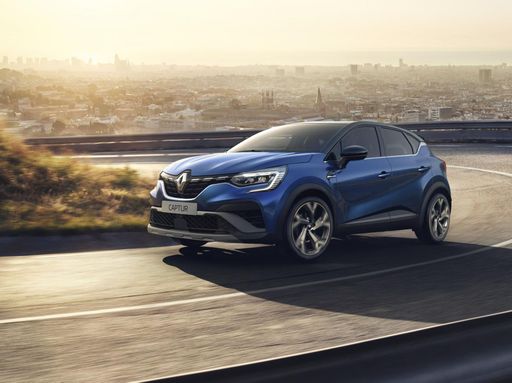
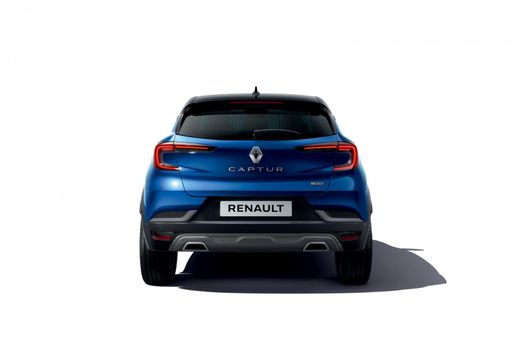
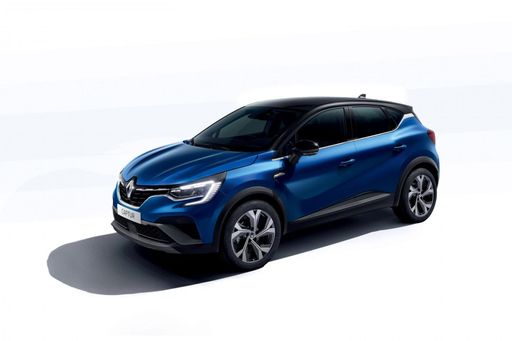
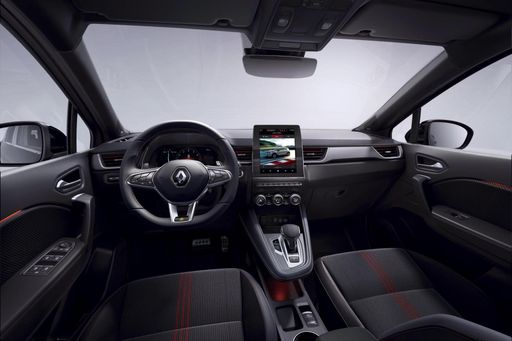
VW ID.3
The VW ID.3 is a crisply styled electric hatch that masks serious practicality behind a friendly, modern face, making city runs and longer trips pleasantly fuss free. For buyers seeking a sensible, well-equipped EV that doesn't take itself too seriously, the ID.3 strikes a neat balance of comfort, tech and everyday usability with a cheeky smile.
details
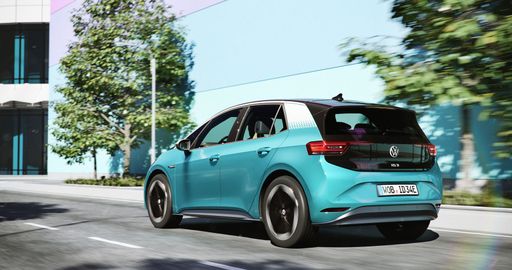
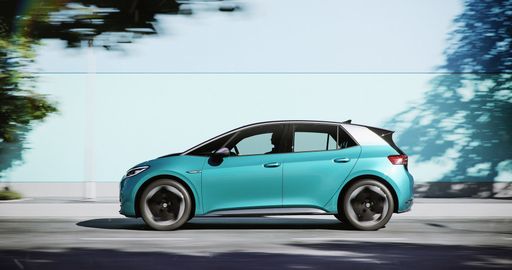
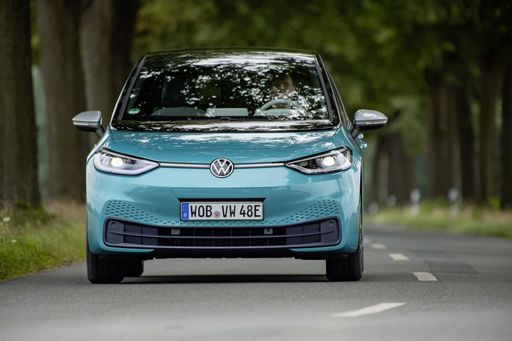
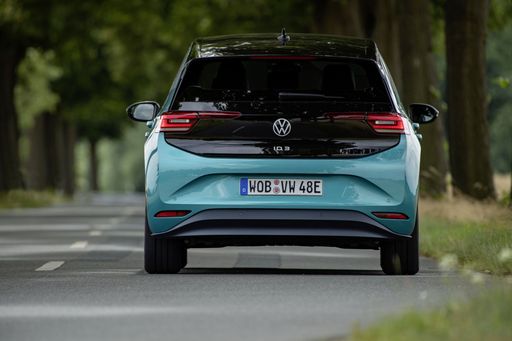
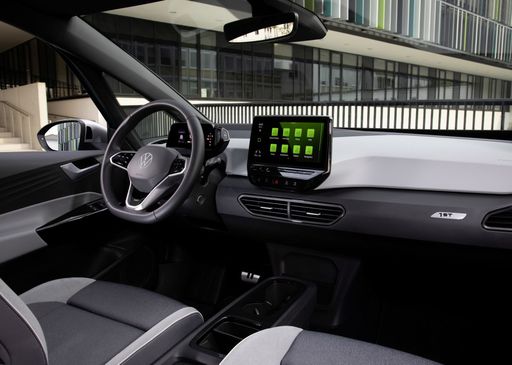

Costs and Consumption |
|
|---|---|
|
Price
21100 - 28400 £
|
Price
28600 - 49300 £
|
|
Consumption L/100km
4.4 - 6 L
|
Consumption L/100km
-
|
|
Consumption kWh/100km
-
|
Consumption kWh/100km
14.5 - 15.8 kWh
|
|
Electric Range
-
|
Electric Range
383 - 605 km
|
|
Battery Capacity
-
|
Battery Capacity
52 - 79 kWh
|
|
co2
100 - 137 g/km
|
co2
0 g/km
|
|
Fuel tank capacity
48 L
|
Fuel tank capacity
-
|
Dimensions and Body |
|
|---|---|
|
Body Type
SUV
|
Body Type
Hatchback
|
|
Seats
5
|
Seats
5
|
|
Doors
5
|
Doors
5
|
|
Curb weight
1323 - 1441 kg
|
Curb weight
1787 - 1993 kg
|
|
Trunk capacity
326 - 422 L
|
Trunk capacity
385 L
|
|
Length
4239 mm
|
Length
4264 mm
|
|
Width
1797 mm
|
Width
1809 mm
|
|
Height
1575 mm
|
Height
1564 mm
|
|
Max trunk capacity
1363 L
|
Max trunk capacity
1267 L
|
|
Payload
447 - 453 kg
|
Payload
437 - 473 kg
|
Engine and Performance |
|
|---|---|
|
Engine Type
Full Hybrid, Petrol, Petrol MHEV
|
Engine Type
Electric
|
|
Transmission
Automatic, Manuel
|
Transmission
Automatic
|
|
Transmission Detail
Automatic Gearbox, Manual Gearbox, Dual-Clutch Automatic
|
Transmission Detail
Reduction Gearbox
|
|
Drive Type
Front-Wheel Drive
|
Drive Type
Rear-Wheel Drive
|
|
Power HP
115 - 158 HP
|
Power HP
170 - 326 HP
|
|
Acceleration 0-100km/h
8.9 - 12.3 s
|
Acceleration 0-100km/h
5.7 - 8.2 s
|
|
Max Speed
180 km/h
|
Max Speed
160 - 200 km/h
|
|
Torque
160 - 265 Nm
|
Torque
310 - 545 Nm
|
|
Number of Cylinders
3 - 4
|
Number of Cylinders
-
|
|
Power kW
84 - 116 kW
|
Power kW
125 - 240 kW
|
|
Engine capacity
1199 - 1789 cm3
|
Engine capacity
-
|
General |
|
|---|---|
|
Model Year
2025
|
Model Year
2024 - 2025
|
|
CO2 Efficiency Class
C, D, E
|
CO2 Efficiency Class
A
|
|
Brand
Renault
|
Brand
VW
|
What drive types are available for the Renault Captur?
The Renault Captur is offered with Front-Wheel Drive.




